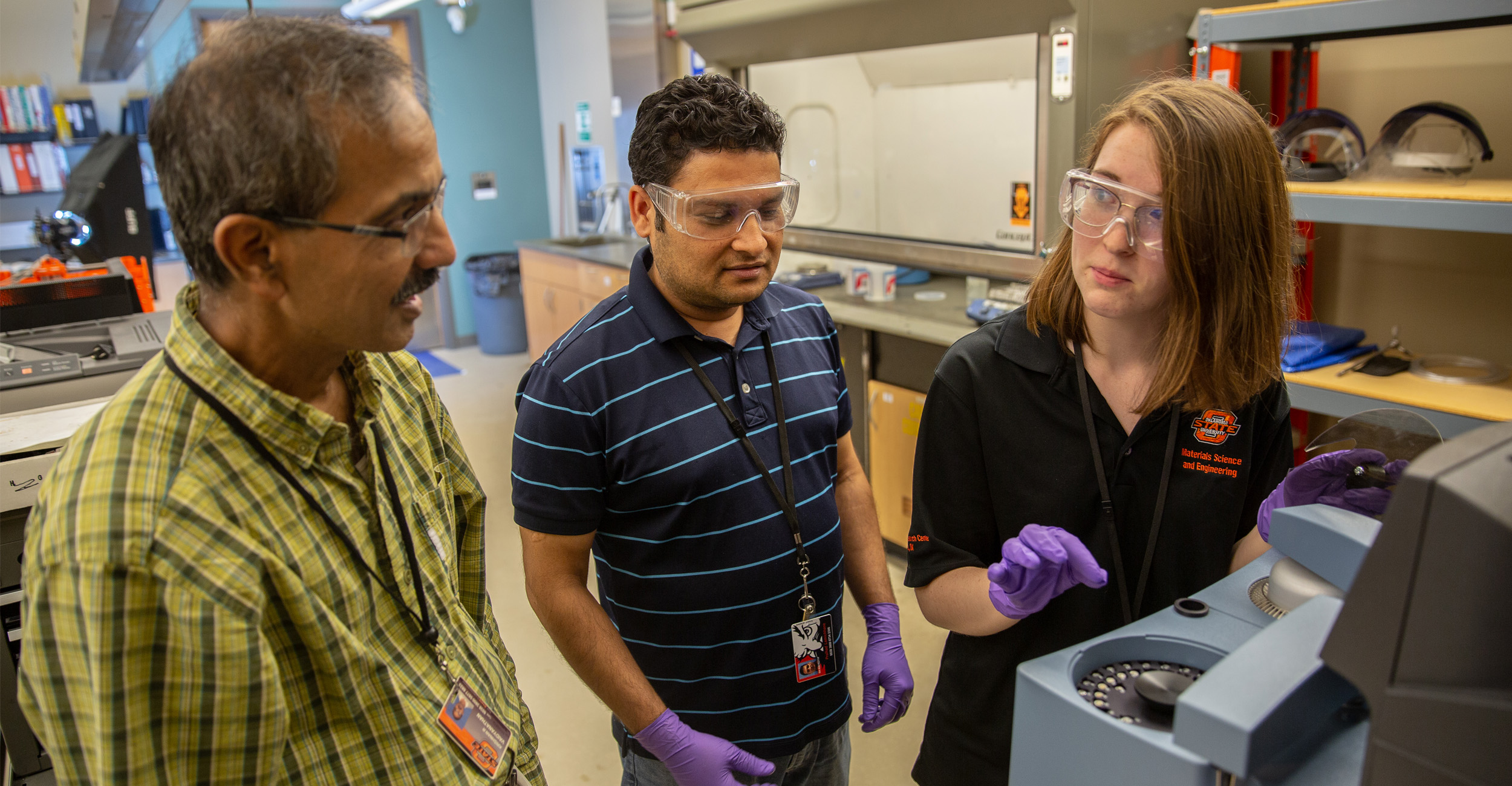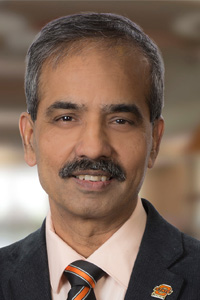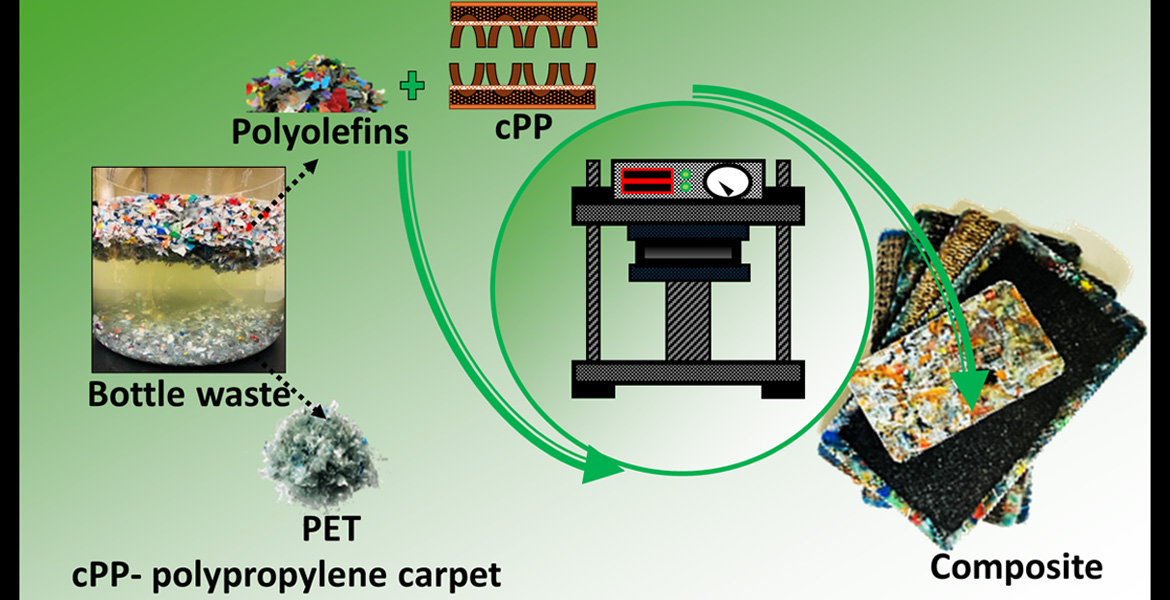
OSU professors reducing waste in landfills
Friday, May 10, 2024
Media Contact: Desa James | Communications Coordinator | 405-744-2669 | desa.james@okstate.edu
Anyone who has ever replaced their carpet knows how heavy and bulky the rolled-up remnants can be. Imagine the space it takes up in a landfill.
Oklahoma State University researchers are working to develop cost-effective ways to reuse plastics like this and create better products with it.
Dr. Ranji Vaidyanathan, Varnadow Chair Professor of Materials Science and Engineering at OSU, and Dr. Frank Blum, Harrison I. Barlett Chair and Regents Professor of Chemistry, have been working to make an impact in the realm of recycling and sustainability.
In 2019, the Department of Energy awarded them a grant to reduce, recycle and reuse common plastics, including carpets, through the DOE Remade Institute.
Recently, they were awarded an NSF Innovation Corps (I-Corps) project to evaluate these products' commercial potential by reaching out to potential customers. This I-Corps project aims to understand customers' pain points in recycling common plastics and carpets.


Around 10 years ago, OSU’s New Product Development Center worked with a small Oklahoma business to recycle post-consumer materials. With the recent push by DOE to fund more projects aimed at reducing, recycling and reusing common plastics, Vaidyanathan, Blum and other OSU researchers have been able to leverage that previous research to obtain funding to develop low-cost manufacturing approaches for recycled materials.
Vaidyanathan and his team of graduate students are set to develop “R-Polyblend,” which can be molded into composite panels using low-cost fabrication techniques such as compression molding.
R-Polyblend is a combination of post-consumer plastics or single-use polyolefins such as polyethylene terephthalate (PET) found in water bottles, polypropylene (PP) and high-density polyethylene (HDPE), and polypropylene (PP) carpet.

“Using “R-Polyblend” would provide low-cost, sustainable composites that would contribute to commercial products such as pallets and acoustic panels,” Vaidyanathan said.
This type of sustainable product can benefit companies using recycled plastic materials. The “R-Polyblend” will be less expensive, sturdier and have repairable parts.
“The recycled plastic parts would be more durable in wet environments and will be easy to clean, which makes them a better value than wood, especially in the food industries," Vaidyanathan said. “Unlike conventional parts, these parts can be repairable, which would make it economical,”
By using post-consumer plastic bottles as well as post-consumer carpets, a significant impact could be made in avoiding landfilling and disposing of some major types of plastics — helping to alleviate environmental concerns.
The impact of this research is also felt at home. Vaidyanathan's students have benefited from this research through a graduate-level class: MSE 5030 Recycling and Sustainability. The class provides hands-on experience about the impact of recycling and sustainability on the OSU campus.
“This project has been used as a case study for class MSE 5030,” Vaidyanathan said. “About 20 students have taken this class, and a couple of students have initiated projects that have commercial potential.”
Vaidyanathan said he is focused on assisting student entrepreneurship and venture creation in collaboration with the Technology Development Center at OSU. He received fellow awards from the National Academy of Inventors and The Society for Advanced Manufacturing and Process Engineering for supporting student entrepreneurship.
Currently, he is working with his 11th student start-up company, mentoring, and assisting them with technical and strategic issues in taking their products to the market. A previous student start-up, MITO Material Solutions, won second place at the prestigious Rice Business Plan competition and has successfully scaled up its product to take it to the market, winning more than $1.1 million from a National Science Foundation commercialization grant and additional investment worth $7.8 million.
The experiences students are garnering through Vaidyanathan could prepare them to become the next generation of forward-thinking engineers and scientists ready to work toward a solution for some of society’s grand challenges.
